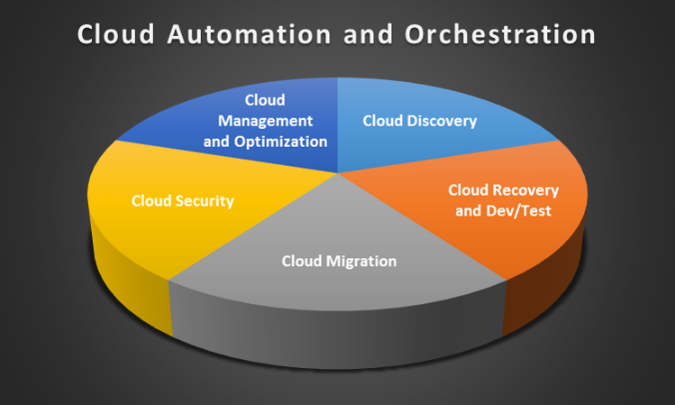Enterprise Tech Leaders At A Crossroad
Earlier this week VMware (VMW) CEO Pat Gelsinger spoke about “violent shifts” in the tech industry:
At a media round table in Toronto last week, Gelsinger said that in his 36 years working in IT, this mobile-cloud era is the most transformative, and that everyone – from vendors to channel partners – will have to adapt.
You might have read my recent blogs Chasm of Disruption or The Trillion Dollar Challenge. They address the violent shifts in IT in more detail and from a CIO perspective. CIO perspectives are important because CIOs drive IT spending and priorities. And IT priorities are shifting on a massive scale.
The traditional leading enterprise tech companies -from Cisco (CSCO) to Microsoft (MSFT) and VMware (VMW) - have for years counted on fairly steady growth with enviable margins, even during periods of economic weakness. That is changing, as a recent CIO survey conducted by JP Morgan indicates.
Cloud, digitalization and mobile are changing the game by accelerating the pace of change, and tech vendors tied to legacy premise hardware will likely face years of unprecedented margin and growth pressures. Some will likely not survive in their current form while others will make the shift.
Contrast the rising fortunes of cloud leader Amazon Web Services, which is generating amazing growth and profitability as reported in: Why Amazon Web Services Is Key to Amazon’s Profitability. The cloud is clearly massively disruptive and profitable at Amazon, even when compared to its core retail business.

That’s a signal to every tech CEO to have a significant cloud play. Yet competing in the brutal infrastructure as a service market (IaaS) with AWS has already generated casualties among well-funded tech leaders with massive talent pools. The next great battle will likely be fought in the cloud automation and orchestration space, which has already seen recent M&A activities. See for example, Two Recent M&A Moves worth Watching and recent purchases of ElasticBox and Arkin.
Taken within the context of the chasm of disruption, Gelsinger’s comments are spot on. He’s advising an uncertain industry that change is coming and that VMware is focused on capitalizing on that change. More CEOs are likely to come on board with a similar message in coming months. And we’ll likely see an unprecedented level of M&A around software, cloud, digitalization and mobile. The chasm will require software not more specialized hardware.
Companies to watch: Cisco (CSCO), Dell, IBM, HP, Oracle (ORCL) and VMWare.
Disclosure: more




As popular as cloud storage has become there are major concerns about just how safe data is when stored on the cloud. One of the most important factors in determining the safety of the data is whether the data is encrypted. This you might think is always the case, but that is not true. Companies and individuals need to check the small print carefully to determine the level and existence of the this security feature. Here are a number of factors to consider (care of Boston University). These are pointers for students but they apply to anyone considering using the cloud as a storage option for data:
Are their security standards appropriate? Do some research. Make sure that the company has a good reputation and solid security policies. Remember, you are trusting this company to store your personal information.
How much data will you be storing? Search with a realistic expectation of the size you need to store all your files. Many companies charge by the amount of storage you are requesting
Is your data encrypted when being uploaded to or downloaded from the cloud? Make sure that your browser or app requires an encrypted connection before you upload or download your data. Look for the “https://” or the padlock beside the URL in your browser.
Is your data encrypted when stored in the cloud? You will have to read the terms of service to find this out, but often your data will be stored on the cloud server with no encryption, this means that anyone that has (or can get) high level access to that server will be able to read your files. This may not be an issue for many files, but you should carefully consider what kind of information you are storing in the cloud and whether you are comfortable with some other person you don’t know accessing it. At a minimum, no data that is protected by law (medical information, personal identifiers, financial data) should be stored in the cloud unless the storage solution is encrypted and you know who can decrypt it.
Understand how access is shared with your cloud folder. Several cloud storage providers allow you to share access to your online folders with other people. Be sure you know in details how this works. Can they read only or can they change the file? Will you know who changed a file last? If you share the file with a group, do you know who all is in the group? Are you notified if the group changes? Does the service allow you to make files public? If you do are your personal details (name, account, email, etc.) attached to that file if a stranger looks at it?
Understand your options if the cloud provider should be hacked or should lose your data. Services like this require that you sign their terms and conditions before they allow you to use the service. In the vast majority of cases, these conditions state that you have very little, if any, remedy if anything bad should happen.
Great suggestions! Not all clouds are created equal, and some are indeed better than traditional data centers when it comes to security. Thanks! G